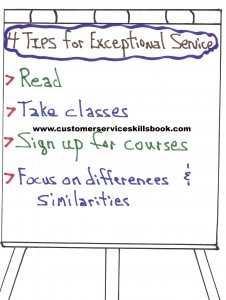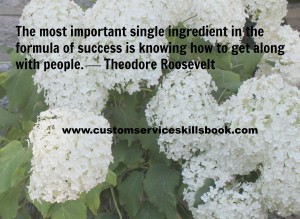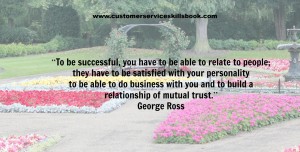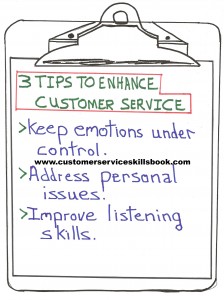The Impact of Stress on Customer Service
The world moves at a much faster pace than it did decades ago because of advancing technology. Changing customer values, beliefs, needs, wants and expectations have caused much of this acceleration. Added pressure to succeed and remain competitive while trying to maintain some sibilance of normalcy related to work-family life has come along with these changes. All of this potentially creates stress for customer service representatives.
Stress is a major contributor to loss of workplace efficiency. Each year, millions of dollars and countless worker-hours of productivity are lost because of stress-related illnesses. In all stress-related studies, customer service is often rated among the top most stressful occupations. In fact, many studies have consistently listed customer service in the top ten most stressful occupations in the United States. This is because the variety of people and situations service professionals face on any given day requires them to call on a multitude of skills and to think quickly. The results of pressures that people are facing in the workplace have been staggering, financially and from a health standpoint.
Some of the results of stress in a service environment include:
- Poor quality of service.
- Lost revenue.
- Loss of brand and customer loyalty.
- Poor worker productivity.
- Negative interpersonal exchanges with customers.
- Worker tardiness or absenteeism.
- High employee turnover.
- Higher health costs.
- Increased training costs.
About Robert C. Lucas
Bob Lucas has been a trainer, presenter, customer service expert, and adult educator for over four decades. He has written hundreds of articles on training, writing, self-publishing, and workplace learning skills and issues. He is also an award-winning author who has written thirty-seven books on topics such as, writing, relationships, customer service, brain-based learning, and creative training strategies, interpersonal communication, diversity, and supervisory skills. Additionally, he has contributed articles, chapters, and activities to eighteen compilation books. Bob retired from the U.S. Marine Corps in 1991 after twenty-two years of active and reserve service.
Make Money Writing Books: Proven Profit Making Strategies for Authors by Robert W. Lucas at Amazon.com.
The key to successfully making money as an author and/or self-publisher is to brand yourself and your company and to make yourself and your book(s) a household name. Part of this is face-to-face interaction with people at trade shows, library events, book readings, book store signings, blogging or guest blogging on a topic related to their book(s). Another strategy involves writing articles and other materials that show up online and are found when people search for a given topic related to a topic about which the author has written.
If you need help building an author platform, branding yourself and your book(s) or generating recognition for what you do, Make Money Writing Books will help. Bob’s popular book addresses a multitude of ideas and strategies that you can use to help sell more books and create residual and passive income streams. The tips outlined in the book are focused to help authors but apply to virtually any professional trying to increase personal and product recognition and visibility.









